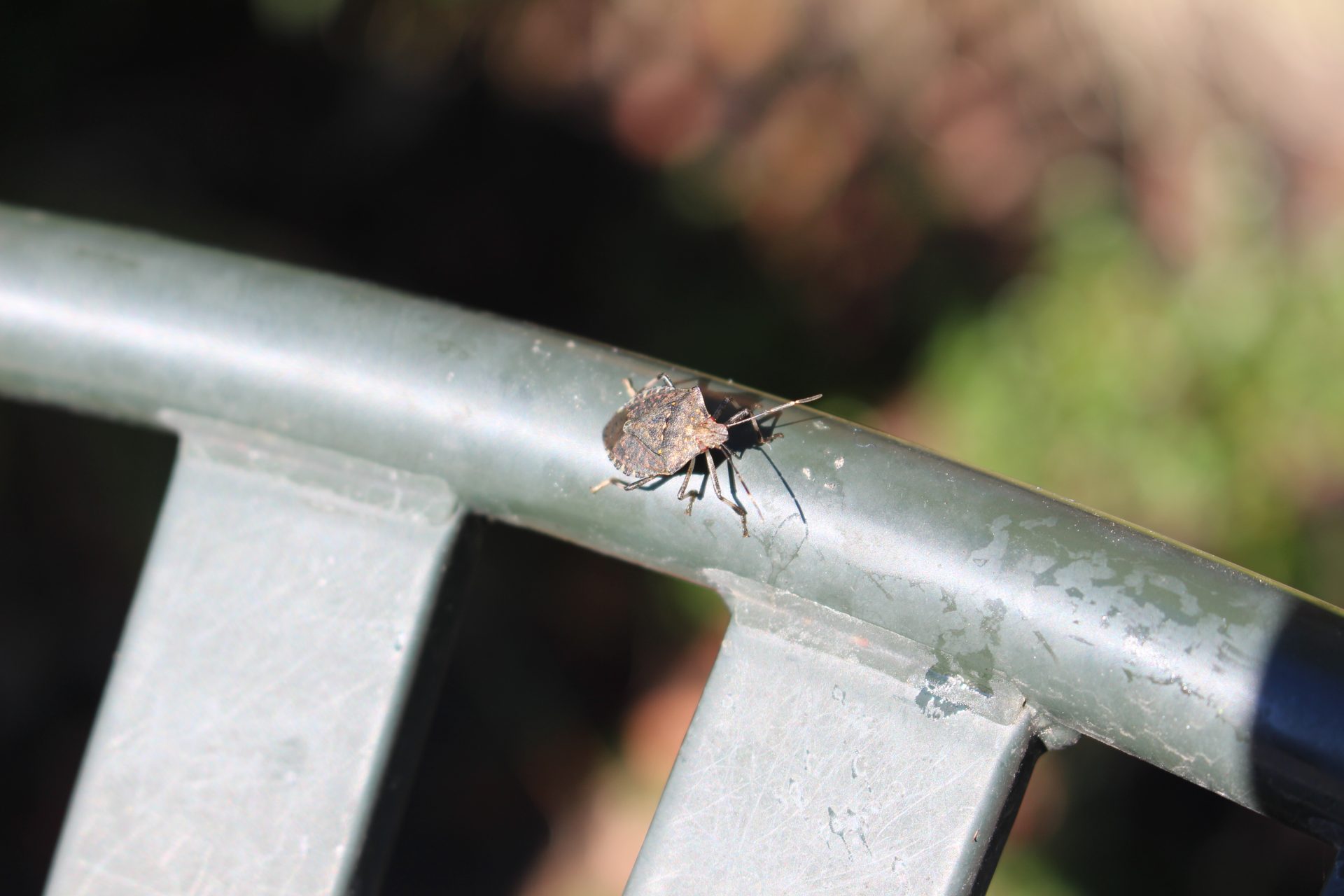
AS STUDENTS return to their classes each autumn, Portland has recently noted trends of stink bugs (also known as shield bugs) making their way indoors this time of year as well. Lewis & Clark residence halls have become hot spots for encounters of the bug kind. Despite the little-to-no threat the insects pose to human health, these interactions are often far from pleasant.
Students, faculty and Facilities are doing their best to address the infestations. The first step is understanding our cohabitors.
“[The stink bugs] started on the East Coast in 1998, moved over [westward] and my guess is that they like wooded areas,” Michel George, Associate Vice President of Facilities said. “They typically migrate inside in the early fall, when the nights start hitting 50°F. So they’re pretty active when you first see them [on campus around September].”
As an invasive species, the insects may have taken multiple paths into the Portland area. Biology professor Greta Binford, who specializes in invertebrates, noted other sources.
“I don’t know how they were introduced, but they were first noticed [around here] in 2004,” Binford said. “They arrived in the US in 1998, likely from China or Japan.”
In addition to ecological concerns, students have expressed discomfort with the bugs, and uncertainty of how to handle them.
“There have been many times where I’ve seen up to three or five just climbing around on my walls,” Casey Pickard ’19 said. “I’ll get them all out – I’ll usually ask a roommate or a hallmate to help me, because I have a huge issue with touching bugs.”
Pickard shares this aversion with other students.
“Yesterday, when I was in Spanish class, I looked up and a part of the wall outside of the building had maybe 300 stink bugs on it, crowding in a corner, and it freaked everybody out,” Pickard said. “Some people didn’t even want to sit on the same side that the bugs were on.”
George noted that the insects sometimes swarm on the sides of buildings in direct sunlight, primarily the south and west walls.
“Somehow they get through from the windows,” Grace Boyd ’19 said. “I think there might be a hole in our [dorm room] screen. I know my other friends have major holes in their window screens and so they enter that way. It’s just kinda freaky because they’re big, and they’re fast and they fly.”
Facilities has a few suggestions for approaching the issue, in addition to an emphatic “Don’t squish ‘em!” from Clark Ide, LC’s Building Maintenance Manager.
“We’ve tried in the last couple years to get screens that work a little better in the windows,” Ide said. “Even our perfectly brand-new screens aren’t gonna work all the time. If people have issues with their screens we’ll address them as best we can.”
George also elaborated upon traps students can make.
“You can set up some soapy water,” George said. “Either put [the bugs] in there, or put a light on there, and they will be attracted to the light and go in the water.”
Binford opts for another solution.
“I’ve seen the big orb-weaving spiders, Araneus diadematus eating them,” Binford said. “There are often agelenid funnel weaving spiders in my office window. These spiders happily capture any [stink bugs] that I drop in their web.”
There is a silver lining in the situation.
“They don’t eat stuff, they don’t bite you, they’re not harmful, they just look ugly,” George said. “They don’t carry diseases, not like roaches or anything like that. So they’re reasonably healthy in terms of little critters. But there’s a lot of them and they smell.”
Meanwhile, Pickard hopes potential solutions can be put into action.
“It would be really helpful if maybe Campus Living could send out some information regarding how students can take care of stink bugs,” Pickard said. “We are in a natural environment, so I think that having more information distributed would be extremely helpful.”
Subscribe to the Mossy Log Newsletter
Stay up to date with the goings-on at Lewis & Clark! Get the top stories or your favorite section delivered to your inbox whenever we release a new issue.

Leave a Reply